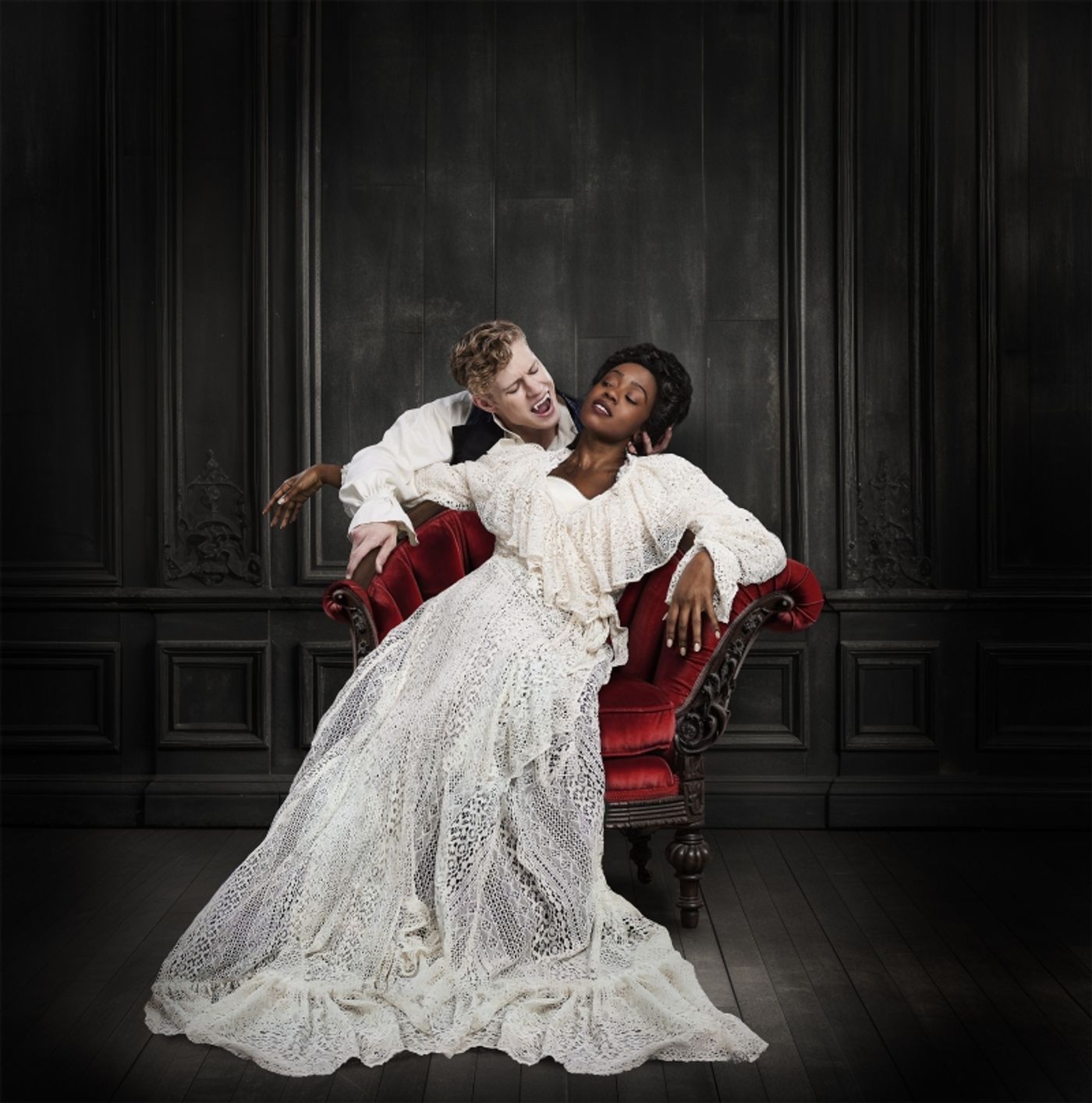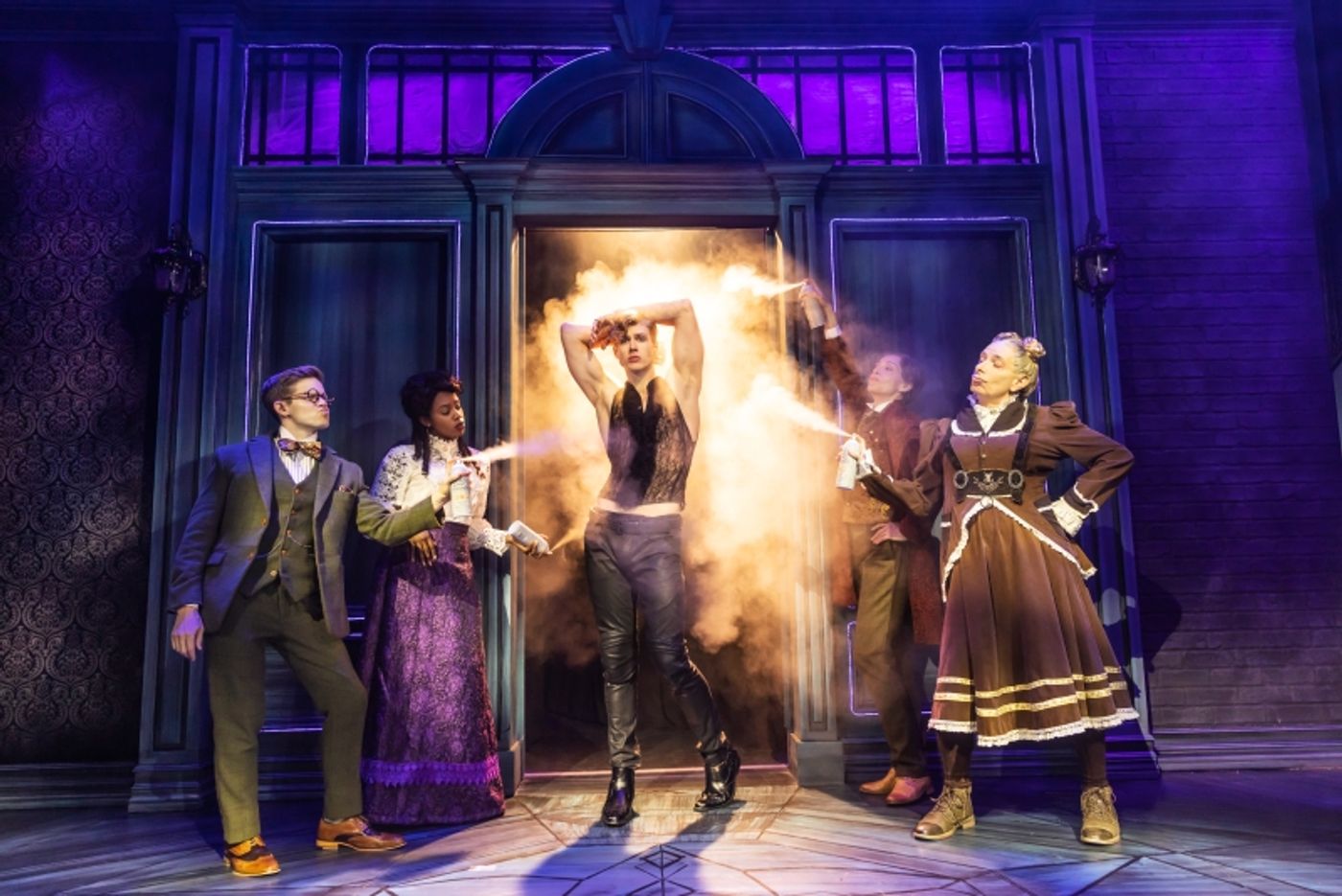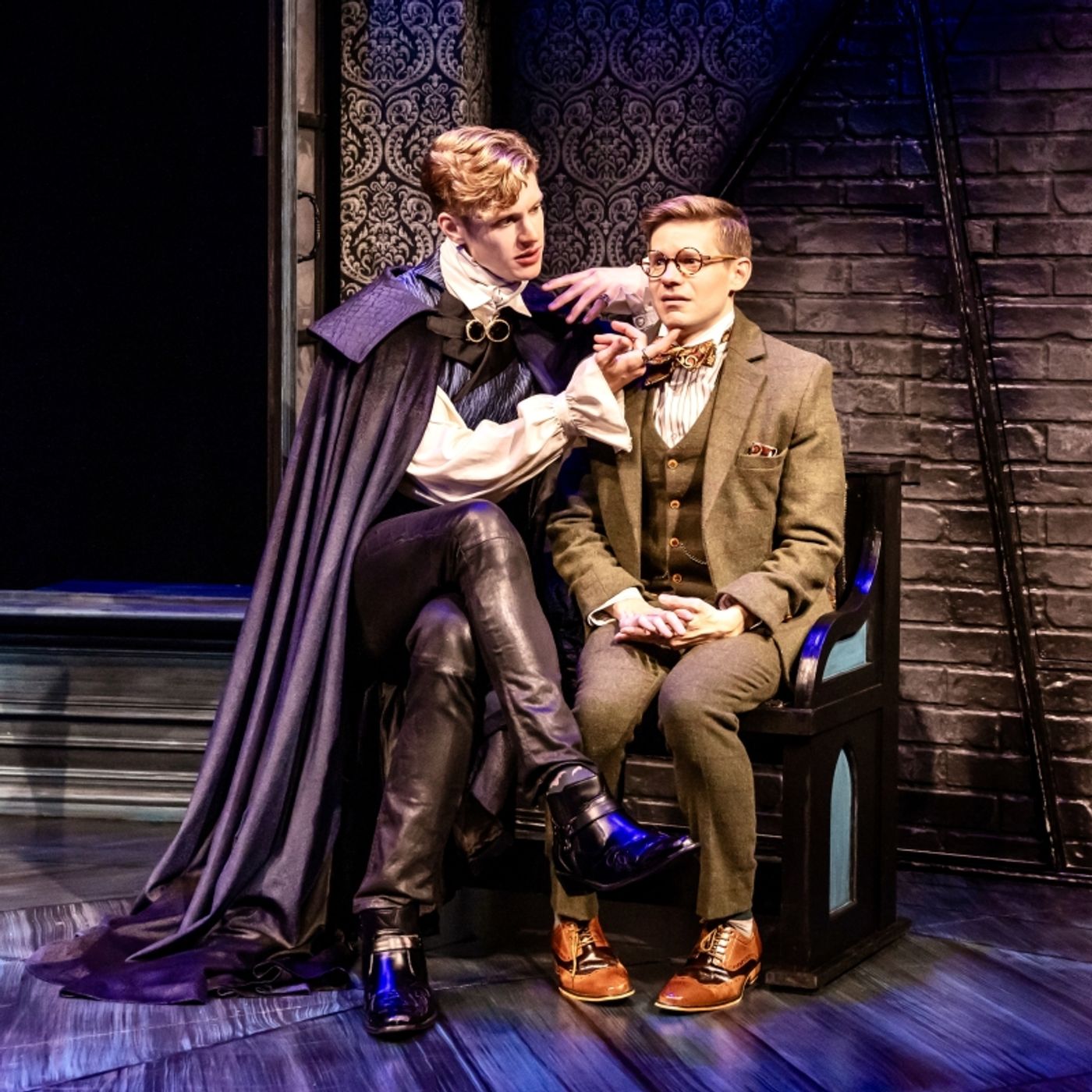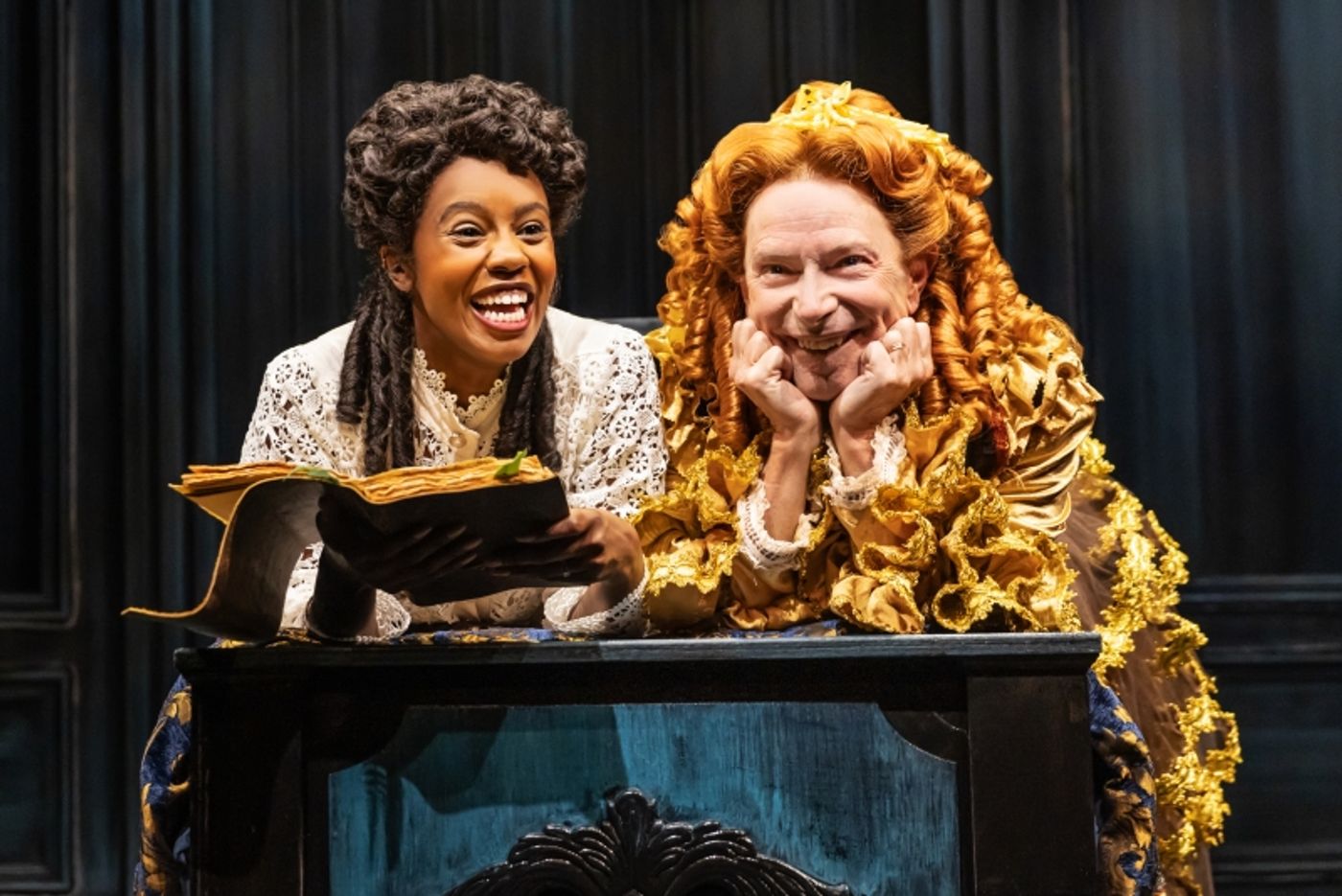Interview: Gordon Greenberg's DRACULA, A COMEDY OF TERRORS Brings a New Perspective to the Iconic Vampire Tale
Dracula, A Comedy of Terrors is playing at New World Stages through January 7.
Dracula, A Comedy of Terrors by Gordon Greenberg and Steve Rosen has made its way to New York City! The unique comedic reimaging of Bram Stoker's horror classic had previous productions at the Maltz Jupiter Theatre in Florida, Capital Repertory Theatre in Albany, at the Segal Centre in Montreal, and was presented as a radio play, is now playing at New World Stages (340 West 50th Street) through January 7.
Greenberg and Rosen's Dracula, A Comedy of Terrors, puts a campy, sexy, hilarious twist on Bram Stoker's story, centering the action on a pansexual GenZ Count Dracula in the midst of an existential crisis.
Directed by Gordon Greenberg, Dracula, A Comedy of Terrors features a company of fearless actors including Jordan Boatman (Medea at BAM, The Niceties), Arnie Burton (The 39 Steps, Peter and The Starcatcher), James Daly (Shaw Festival, Stratford Festival, Hulu’s “Letterkenny”), Ellen Harvey (How To Succeed, Present Laughter) and Andrew Keenan-Bolger (Disney’s Newsies, Tuck Everlasting). The company understudies are Kaitlyn Boyer and Sean-Michael Wilkinson.
BroadwayWorld spoke with Gordon Greenberg about the origins of Dracula, A Comedy of Terrors, what to expect from this unique reimagining of the iconic vampire tale, and more.

How does it feel for you that Dracula, A Comedy of Terrors is being presented Off-Broadway?
Fabulous. I feel like we’re finally landing in a place where it was meant to be. It's right in the middle of New York City in Hell’s Kitchen, and the theater itself is so perfect. It’s a warm hug of a classic Off-Broadway theater, an adorable little mezzanine, 250 seat theater where every single seat is terrific.

I want to jump back to the origins of this show. What made you want to create a reimagining of Dracula?
It actually was suggested by Andrew Kato, who runs the Maltz Jupiter Theatre in Florida. Steve Rosen and I had done a Scrooge that we had written in a similar style that’s been playing at The Old Globe for the last five years. It uses five people playing a multitude of roles, and it celebrates storytelling itself, just through the kinetic movement of the show, and the hyper-theatricality of physical language, and how you make a bed with a blanket and a pillow. I am deeply excited and invigorated by those challenges, so when he said, “How about you do something like that with Dracula?” we both jumped up and down and said, “Absolutely, give us a shot.”
The deeper we got into it, the more fascinated I was by Bram Stoker himself, thinking about why he wrote what he wrote, and what the metaphorical import was for it, and where does it come from? I always ask myself, ‘When was it written?’ ‘Why was it written?’ ‘What purpose did it serve at the moment?’ ‘How is it a response to its time?’ So, this was written in Victorian England by a man, who, at the time, was a theater manager of The Lyceum, which is where The Lion King plays now near Covent Garden in London. And he met, through his position, a lot of important people who passed through, including Oscar Wilde, and notably, Walt Whitman, and he started letter writing, he started epistolary relationships with them. And you can feel the tension.
When you go back and look at the writing with that in mind, you suddenly understand what was subversive about it. And I think that kind of inherent queerness—and I don’t use that word lightly, I’m not one of those people who just throws around words [laughs]—but he truly does embody that notion, because there wasn’t really a word for gay then. He did marry a woman, and I think he lived, from all reports, probably in a more platonic relationship with his wife, and then had more intimate relationships with others. But it’s all laced in here. And the notion of Dracula as a person for whom enough is never enough, and he has an unlimited supply of everything he wants, and it makes all of it worth less. Not entirely worthless, but worth a lot less than someone for whom any one moment, whether it’s personal, material, or ideological, is going to mean more if it’s rare.
Dracula gets everything, and is, thus, kind of a narcissist, and a lot like many of us in today’s world, where the talk gets higher, and higher, and higher, and we’re all cultivating these images of ourselves monetarily, materially, in every way, and people just want more, and more, and more, and more. And this became a statement on that, versus the repression of the Victorian Era, and how we could have fun with all of that. So, this is what’s underneath, but what we’ve created is a play that is hopefully sexy, silly, dangerous, and involves lots of puppets, and people understanding, discovering, skirting around their sexuality. And it’s all provoked by this guy that comes into a very staid world and shakes it all up.

When you’ve written a play, how does it feel to be able to further your vision of it even more as the director?
Well, with a cast like this it’s a rare treat, and privilege. When Steve and I write, there is a part of me that’s thinking about the physical production, there are certainly moments, but I think in broader strokes, like, ‘There are going to be opportunities here,’ ‘We can drill for oil here in the directing department later,’ or ‘I’ll figure out a way I can use puppets here, that’ll be funny.’ But I don’t get super granular and specific until the next phase where we go into pre-production and then I’m thinking much more as a director, and then I kick questions to Steve. And it’s a great collaboration, a beautiful teamwork that we have.
While we have a lot of similarities- both of our parents happen to be pediatric dentists who grew up in Queens, we kind of grew up with the same comic influences- we certainly have a lot of differences in the way we see the world, and I feel like they balance each other out in a wonderful way. So, we do rely on each other to say, “That’s too cerebral,” or “That’s too pretentious,” or “That’s too basic,” or “We could do better,” whatever it is. And when you get to direct the thing that you have imagined, it is like a firehose of ideas. When you have cast members with this much talent, and ingenuity, and wit, they can take your gesture and deepen it, make it laser sharp, and do more and more. And they challenge me to make sure everything we’re doing makes sense within the world that we’ve created, and it is an absurd world [laughs]. It’s not like we have to say what necessarily would happen in “reality”, but what would happen in this reality.
You’ve directed this play before, does your relationship to the work change based on the production, and the cast, and as the years go by?
Oh yes, for sure. I feel like we were figuring out what it was when we did it before the pandemic in Florida, but as we continued to develop it, and discover more and more of the countercultural disruption inherent in the original novel, and embraced that a la Charles Ludlam, The 39 Steps, Avenue Q, all of it kind of freed us from a need to make anything overly tailored of perfect.
And when we landed in New York, because these are actors who can do anything, there was also this strangely moving core idea of a couple that are about to be married, that are engaged, and that are suddenly having doubts. Dracula is an expert at sniffing out divisions and opportunity to further drive people away and make space for himself. Those are vampires, and they exist in the world, and we see them, but that’s what he does here, and you watch them in a very honest way. Having the great Jordan Boatman play Lucy, and the phenomenal and wondrously buoyant Andrew Keenan-Bolger playing Jonathan Harker, you see their vulnerability, they wear it very comfortably.
What are you most excited for new York audiences to get to see with this show?
I love that they really seem to get all the humor, from the high to the low brow. There are jokes about mental health, and jokes about Mary Shelly and other Victorian literature, and then there are I Love Lucy jokes, so it runs the gamut [laughs]. I think we just wanted something that would have something to say underneath, but really celebrated theatre itself, and storytelling, and was a romp in the grand tradition of Monty Python, and Charles Ludlam, and even Mel Brooks.

Switching gears for a second, is there anything you can perhaps just tease for us about the Huey Lewis musical?
All I can say about it is that there will be news about it emerging. Exciting news there. There are big plans.
Do you have any final thoughts you’d like to share?
I can’t wait for New York audiences to come and laugh their butts off, and just have a great night out with a super sexy and silly Dracula.
Powered by
|
Videos

